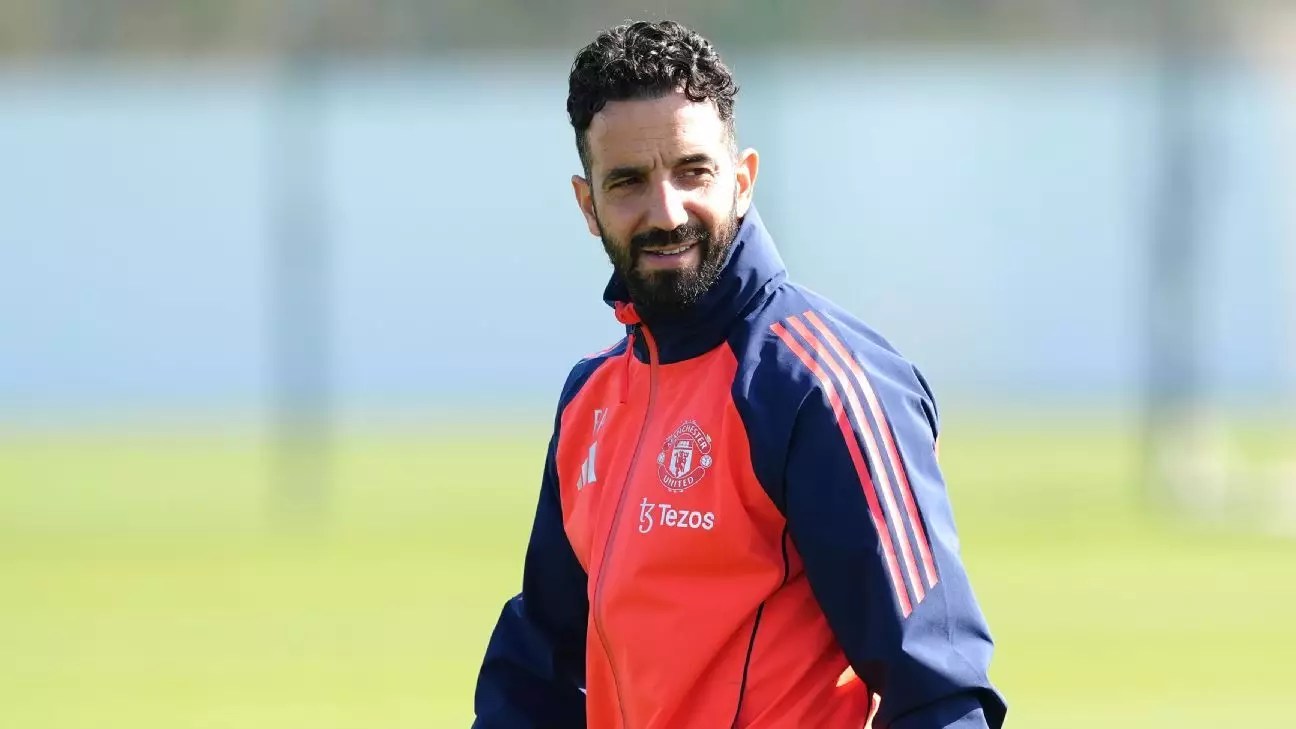Manchester United’s journey under Ruben Amorim has been a fascinating study of adaptability and resilience. Since taking the helm in November, Amorim has highlighted a significant discrepancy in performance between the Europa League and the Premier League. Despite the bumpy road in England’s top-flight, with only six wins out of 20 matches, his squad seems to thrive in the slower-paced context of continental competition. The paradox presents not only a tactical challenge but also a psychological one—how to translate success from one environment to another.
Amorim’s observations point towards the heart of this dynamic: the “pace and physicality” of the Premier League, often touted as the world’s most challenging football league. The frenetic lifestyle of English football, characterized by quick transitions and physical duels, can potentially stifle a team’s ability to think and execute strategies effectively. In contrast, European fixtures afford players more time to ponder their actions, arguably leading to a more calculated and reflective style of play. It raises the question: Is the modern footballer trained adequately for this duality of high-intensity versus thoughtful play?
The Psychological Edge
What Amorim reveals is an essential truth of modern football—the mental game carries just as much weight as the physical. In matches where players experience more time on the ball, confidence surges; they can assess situations and exploit weaknesses more effectively. This psychological boost may not only aid players in executing strategies but also in elevating their performance levels. Such distinctions underline the complex landscape in which coaches like Amorim must navigate to forge winning teams.
The ongoing struggles of Manchester United in the Premier League only underscore the importance of adapting tactics to different competitions. While they might find solace in Europa League play, the reality remains that success on European soil does not automatically translate to triumph domestically. The mentality must shift alongside the tactics, demanding not just physical adaptation but a significant psychological evolution as well.
Hope Amidst Struggles
As Amorim leads his team into the Europa League quarterfinals against Lyon, the atmosphere is charged with both challenge and opportunity. Winning the prestigious title is not merely about lifting a trophy; it bears implications for the future—financial stability, recruitment potential, and the ability to compete at the highest level in the Champions League the following season.
The recent history of United is littered with inconsistency, sparking a longing for a return to glory. Amorim’s narratives hold a fallback of optimism, emphasizing the psychological benefits that accompany potential silverware. The return of key players, particularly Kobbie Mainoo, hints at hopeful rejuvenation. However, a shadow of uncertainty looms over other absences, such as Matthijs de Ligt, which speaks volumes about the fragility that often accompanies ambitious teams in transitional phases.
The Path Forward
Ultimately, Amorim’s approach is not merely about focusing on the advantages presented by slower-paced games but rather about constructing an identity that can thrive irrespective of the competition’s demands. Bridging the gap between European success and domestic failure must be a priority for the squad. This challenge requires recalibrating not just tactics but also instilling a mindset conducive to overcoming adversity in varying contexts. For Manchester United, every match—be it in the intense Premier League or the comparatively tranquil Europa League—will shape their future trajectory, making their journey this season one of potential discovery and rebirth.


Leave a Reply